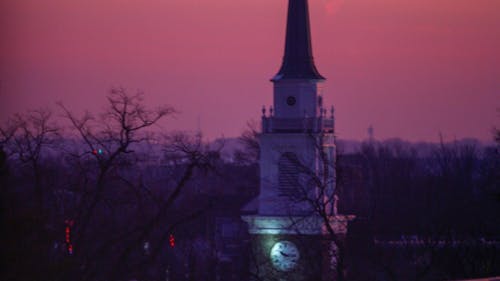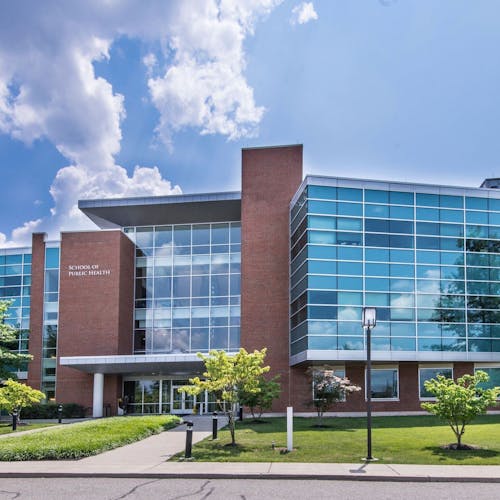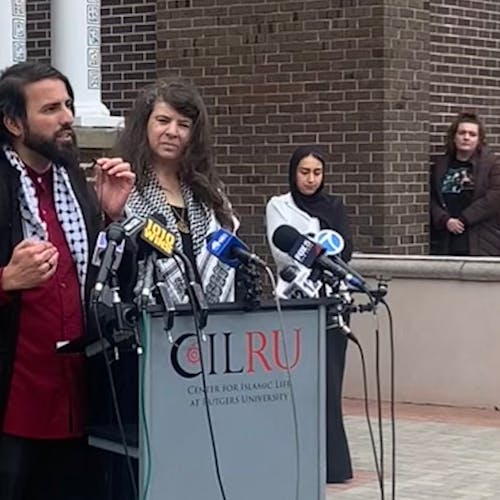Lack of religious affiliation among young people rising, study shows

As Christianity continues to decline in the United States, more Americans are identifying as religiously unaffiliated, according to a new study from Pew Research Center.
Researchers randomly interviewed 168,890 Americans via telephone between 2009 and 2019 about their religious identities, beliefs and practices. The sample of American adults included a range of age groups, ethnicities and religious affiliation, or lack thereof.
The study found that between 2009 and 2019, the number of religiously unaffiliated Americans rose by 30 million, while the number of Christian adults went down by 11 million.
Individuals who are considered as religiously unaffiliated identify as atheist, agnostic or nothing in particular, according to the study. Connor Boxczyk, a Rutgers Business School sophomore, identifies as the latter.
“Do I think there could be some higher form of consciousness, energy or being that will forever be beyond my understanding and is god-like? Sure, why not? Do I have a strict, specific belief system based on that? No,” he said.
Data from the study also shows generational gaps in religious affiliation. While more than 8 in 10 members of the Silent Generation identify as Christian, 4 in 10 millennials are considered religiously unaffiliated.
Hailey Parikh, a School of Arts and Sciences sophomore, said improved quality of life is causing this generational difference.
“Population growth has reached a certain peak, mortality rate is at a low. And we’re also in a period of relative economic growth,” she said. “It would make sense why the intervention of religion and God would not be very necessary at the moment.”
Brought up in a Hindu and Jain household, Parikh has identified as an atheist since the seventh grade. Many have told her that a lack of religion would make her cynical, but she said it makes her self-dependent.
“Most theists look for a sense of security and well-being in external sources of God and religion. I like to believe I have a degree of agency on these matters,” she said. “I still think religion as a way of life can be comforting and give a sense of identity and community. But it is certainly not for me.”
Director of the New Jersey chapter of American Atheists Bill Goers said the generational differences may also reflect an increase in religious tolerance.
“If it’s somebody my age that I’m talking to and they’re Christian, you can see the hair stand up on the back of their neck. They are not happy being around someone who says they’re atheist,” he said. “Whereas if a 25-year-old person is talking to a friend and one happens to be religious and the other isn’t, I don’t think it’s as big of a deal.”
Between 2009 and 2019, the number of religiously unaffiliated millennials increased by 13%, while the number of Christian millennials decreased by 16%, the study found.
Dr. Dugan McGinley, a teaching instructor in the Department of Religion, said that this could be due to increased skepticism of religious institutions.
“Millennials may see corruption in the church or other religious institutions and become disillusioned with religion,” he said.
A college education also plays a factor in religious affiliation, according to the study. Since 2009, the number of college graduates who identify as Christian has gone down by 13% while the number of religiously unaffiliated college graduates has gone up by 12%.
Boxczyk, who was only exposed to Christianity, Judaism and Islam growing up, said he gained new perspectives on religion in college.
“I actually had a class on Byzantium and the rise of Christianity and Islam that, if anything, made me even more skeptical of organized religions since it was framed almost as a second form of government and control,” he said.
For other students, college made them believe more strongly in Christianity.
“The appeal of Christianity or religion for some students is the community they find,” McGinley said. “Their beliefs are often reflective of the people they spend time with.”
Blessy Stanley, a School of Arts and Sciences sophomore, is a small groups leader in the Rutgers Indian Christian Fellowship and said that she only truly experienced God in college.
“I was always a reckless kid so I thought I would be wild with all the freedom college provided me, but God made himself evident in my life in everything I did though my classes, people and events I went to,” she said.
College’s effect on religious affiliation is not unique to millennials, McGinley said. Older generations also went through periods of religious questioning during college, he said, but did not identify as agnostic or atheist because it was not socially common.
“Today, because it’s so common, millennials are much more willing than previous generations to identify as atheist or agnostic,” he said.
Editor's Note: A previous version of this article referred to Blessy Stanley as Blessy Patel.



